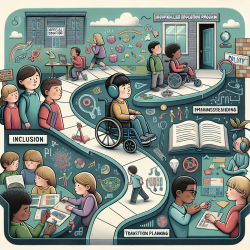Early intervention (EI) services are crucial for supporting children with developmental delays and their families. The study "Satisfaction and Quality of Life of Families Participating in Two Different Early Intervention Models in the Same Context: A Mixed Methods Study" offers valuable insights into the effectiveness of different EI models. By understanding the findings of this research, practitioners can enhance their service delivery to create better outcomes for children and their families.
Key Findings from the Study
The study compared two EI models: early intervention centers (EIC) and routines-based early intervention in natural environments (EINE). Here are the key findings:
- Families receiving EINE reported higher satisfaction with the service compared to those receiving EIC.
- Both groups showed similar scores for family quality of life in most domains, but EINE families reported better physical well-being and problem-solving capabilities.
- Professional support and the ability to address child-specific needs in the home environment were highly valued in the EINE model.
- Families attending EIC appreciated the structured environment and the opportunity to interact with other parents.
Implications for Practitioners
Practitioners can use these insights to improve their EI services:
1. Emphasize Family-Centered Practices
Practitioners should focus on family-centered practices that involve parents in goal setting and decision-making processes. This approach not only empowers families but also enhances their satisfaction with the services.
2. Enhance Professional Training
Continuous professional development is essential for delivering high-quality EI services. Training should include strategies for effective communication, family engagement, and the implementation of routines-based interventions.
3. Optimize Service Organization
Flexibility in session duration and frequency can improve family satisfaction. Practitioners should consider parents' preferences and needs when organizing services. A combined model that includes both center-based and home-based interventions could be beneficial.
4. Improve Assessment Processes
Streamlining the assessment period to reduce delays can alleviate family stress and improve early intervention outcomes. Practitioners should aim for a more agile and efficient assessment process.
Encouraging Further Research
While this study provides valuable insights, further research is needed to explore the long-term impacts of different EI models on children's development and family well-being. Practitioners are encouraged to engage in or support research initiatives that aim to refine and enhance EI practices.
To read the original research paper, please follow this link: Satisfaction and Quality of Life of Families Participating in Two Different Early Intervention Models in the Same Context: A Mixed Methods Study.










